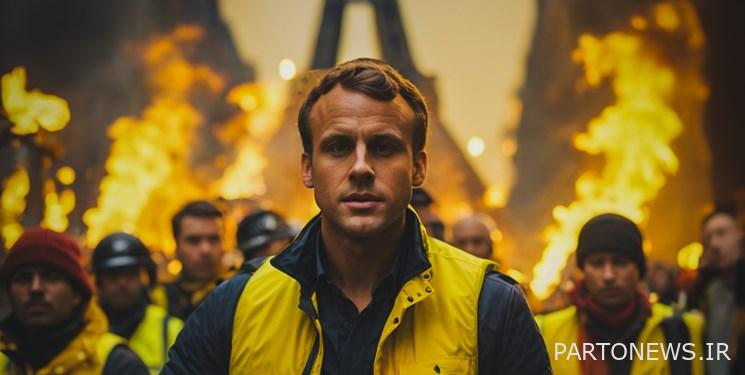Rezazadeh: “Macron” documentary shows the other freedom claimants

Sajjad Rezazadeh, the director of the documentary “Makron” in a conversation with the Fars News Agency radio and television reporter, referring to the idea of making this documentary that was broadcasted on Saturday on Sima Documentary Network, said: the main idea was presented by the Surah Documentary Center, which after After a little discussion and exchange of opinions, I wrote the general narrative process and after approval, the work was started.
Pointing out that this work is all archival, he said about the difference between this documentary and other types of documentaries: In principle, there is no difference. Other formats tell a story with a content objective. With the difference that the filmmaker writes the story and looks for appropriate images in different archives for its visual music.
The director of the “Macron” documentary stated that perhaps the most difficult task in this documentary was to find the archive, and said: The big and official media, which produce many videos and reports about every unimportant issue, show the realities of those days in France as much as possible. They were tired and this made it difficult for an archival documentary. Our sources for the narrative were the endless sea of the Internet, especially informal, personal and independent media.
Rezazadeh explained in response to the question of how much archival documentaries rely on text: In all works of art and especially media productions, everything starts from a white paper and the first ideas are generated from the first written words.
He continued: Since the documentary film also has a story line, several characters and events, it needs text, writing and author. In archival works as well, since all executive work takes place in editing, it will not be possible not to have a text that specifies the path and shows the beginning and end or the peak and descent.
The director of the “Macron” documentary, in response to the question of what the work has to say to the audience and what purpose it pursues, stated: to show the face of other claimants of freedom and to correct the perception of some people about the realities of France; From the violent treatment of the police to the protesters, to the mistakes of the French government in the management of the crisis, and the media’s understanding of such events in Iran and similar countries is shown in this work.
Rezazadeh said about the subject of this documentary: This work, which is in French and English, without analysis, only with the available documents, is trying to show the French incitement in recent years and the involvement of the president of this country, Emmanuel Macron, in the events of Iran, without prejudice and bias. to depict
In response to the question that in the case of “women, life, freedom”, Western countries did not fail to make any attempt to blackmail and exaggerate, but why they did not go to other countries and went to France, he said: First of all, France, despite His claims, he stood in full and public support of the rioters. Secondly, what happened in France had many similarities with what happened in Iran, and the narration of this similarity and the display of the contradictions of the French authorities in response to these events made us go to France and Macron.
The director of “Macron” reminded about not using his narration for the documentary: it was a difficult choice. Narration, with all its advantages and charms, creates a veil and a distance between the content of the work and the audience. It seems that the filmmaker intends to persuade the audience to accept the content he presents! Considering that we intended to narrate the story in such a way that the audience will come to the conclusion by putting together the puzzles we put together and we do not analyze, we decided to confront the audience with the content in the purest possible way. Even at the cost of watching movies!
In the end, Rezazadeh said about the experience of working with Mohsen Sadr as the producer and Surah Documentary Center as the trustee of the work: Mohsen Sadr is a hard-working, precise and concerned young man, and he had a lot of courage and precision in following up and advancing the work, which definitely, if not for him, the work It did not work. The Surah Documentary Center also has a clear history that all documentary film fans follow and admire the works produced in this center. This collaboration was both enjoyable and a source of pride for me.
end of message/
You can edit this article
Suggest this article for the first page

